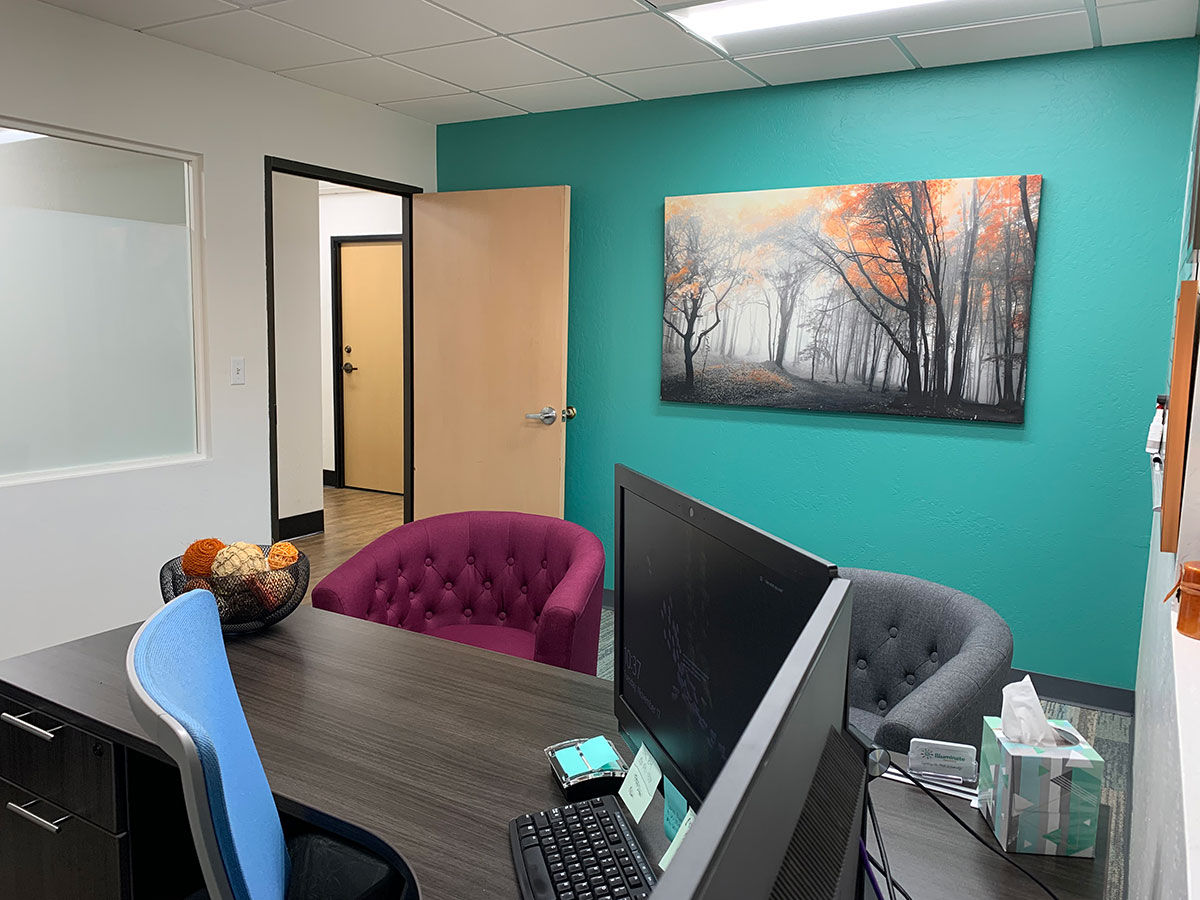Setting goals during addiction recovery can be one way to help shape what the future could look like. It is beneficial to take the time to explore your values and passions to help you identify what kind of goals would be valuable to your journey.
It is also helpful to make large goals but to find ways to break them into smaller, achievable steps. Setting recovery goals can help you maintain focus when triggers rise, which can help prevent risks of relapse or other harmful behaviors.
What Is an Addiction Recovery Goal?
Recovery is an ongoing process. Its purpose is to help individuals with substance use disorder live a life that is more self-directed. For you, this may mean focusing on improving health and wellness with an overarching goal to reach your full potential. Treatment is really just a small aspect of the lifelong journey of recovery, and setting goals can help you grow and develop into the person you want to be.
Setting goals is an important aspect of anyone’s life. Goals help us focus and shape our behaviors and decisions to meet those goals. Recovery goals help you create a new mindset when it comes to how you approach life.
A recovery goal concentrates specifically on improvements you want to make when it comes to healing and growing. A recovery goal helps you stay motivated, provides focus, and is tailored to help you along the road of recovery.

Value of Addiction Recovery Goals
There are several reasons goal-setting can be a crucial aspect of recovery.
Improves Self-Esteem
Recovery goals can be valuable because they can help individuals struggling with low self-esteem. While anyone can be impacted by low self-esteem, it can be especially prevalent in individuals starting their recovery journey. Substance use can leave you feeling isolated, guilty, and full of shame.
If you are also dealing with a mental health disorder, these feelings of insecurity can be overwhelming at times. Goals are a way to rebuild low self-esteem, providing a sense of achievement and success.
Promotes Positive Thinking

Goals also require positive thinking — they allow you to focus on what you want instead of focusing on what you don’t want. Setting a goal of “I’m going to stop drinking” focuses on the negative. However, if you set a goal of “I’m going to stay on my path of recovery today,” you keep the focus in a positive place. It truly is okay to set some goals that are simply one day at a time.
Provides Sense of Purpose
Recovery goals also provide a sense of purpose. Substance use can impact employment, schooling, and relationships. Especially in early recovery, adjusting to a new way of life can feel impossible. Goal setting provides the means to feel motivated when it comes to creating a new path in life. Achieving goals, no matter how small, can impact the way you find purpose.
Recalls the Nature of Recovery
Goals also work as the perfect reminder that recovery is an ongoing process – there is no end date. It is common for individuals to put too much focus on the big-picture goal of living a sober life. While this is a great goal, creating smaller, short-term, and long-term goals can help you realize that while there will be triumphs, there will also be shortcomings and hardships.
Starting small and working toward large goals is a way to help overcome setbacks in life and see the changes that have already been accomplished. This can be something as simple as committing to attending a meeting every week.
Develops a Focus on the Future

Recovery goals help you focus on the future. When recovering from a substance use disorder, you can feel stuck in the past and risk repeating mistakes you made when you weren’t yourself. One of the most important aspects of recovery is learning to accept what happened in the past and realize it doesn’t define you today.
Instead, you can find the power within to look ahead and not behind. Setting goals in recovery forces you to be forward-thinking and work as a great reminder that you can’t change what has already happened.
Setting Addiction Recovery Goals
Recovery goals are a great way to stay on track, as they provide both focus and motivation. With any goal-setting process, however, it is important to be realistic. For example, individuals in recovery often set a goal of maintaining sobriety. However, that is a very broad, all-encompassing goal. Having huge goals is great, but any setbacks could feel detrimental if you are always focused on the big picture.
Instead, it may be more beneficial to set smaller goals that support that large goal. One of the easiest ways to think about realistic goal setting is to use the SMART model. The letters in SMART stand for specific, measurable, achievable, relevant, and time-bound.
Specific
When you set a goal, it is beneficial to be as specific as possible. Instead of setting a goal of “I will attend meetings,” make it more specific. Instead, say, “I will go to three morning meetings a week at my local YMCA.” When you’ve made a specific goal, write it down. You should strive for your goal to be specific enough to answer who, what, when, where, and how. The more detailed you can be, the less leeway you are giving yourself to miss the mark on your goal.
Measurable
A strong recovery goal should also be measurable. Saying, “I want to attend meetings,” is vague, and it would be difficult to determine if you actually accomplished your goal. Yes, you could consider attending a meeting or two a success, but would those occasional meetings truly provide the support and guidance you need for long-term recovery? When you attach a specific number, you’ll feel a greater sense of accomplishment when you can clearly see you fulfilled that goal.
Achievable
Goals need to be realistic and attainable, especially for those in recovery. Setbacks can feel detrimental, which can lead to unhealthy decision-making. Telling yourself, “I’m going to attend two meetings a day, every day,” is not realistic for most. Unrealistic goals can place unnecessary strain on your day-to-day life.
When setting recovery goals, it is okay to start small. If you attend multiple meetings a day every day, awesome! Just remember to be patient and understanding with yourself. It’s always great to go above and beyond a goal, but setting yourself up for potential failure can be counterproductive to your long-term success.
Relevant
Your goal should be relevant to your life. The point of goals is to add to your life, making it better. Your goals should never be something that could interfere with other goals in your life. The goals you set should provide some type of meaning for you. This meaning is what provides motivation. If something isn’t actually relevant to you, odds are you won’t be that committed to it.
Time-Bound
Goals work best when you put them within a certain time frame. This provides the means for you to set a clear start date as well as an end date. If your goal is to regularly attend three meetings a week, you can set the goal for the next month. Once you reach your end date, you can reassess how this goal is working for you.

Does it still motivate you? Does it still feel relevant? You can also decide to stretch the goal for three months, or if you feel you’re on a good path, maybe you want to reset the goal to two meetings a week. Goals do not have to be rigid — they can allow for some grace and wiggle room as you learn who you are and what your priorities are.
Tips for Creating Addiction Recovery Goals
Setting goals can be difficult, especially during early recovery. Here are some tips for creating recovery goals.
Give Yourself Time
Achieving a true sense of self when it comes to stability and purpose can take time. For that reason, it is okay if you initially feel overwhelmed by the concept of creating goals. It can take months, if not years, to become acclimated to a sober lifestyle.
It is beneficial to give yourself time and be patient with yourself. If you’re like many individuals, one day at a time is as much forward-thinking as you can do, and that is perfectly okay. When you are ready to start implementing goals, think SMART.
Start Small
Taking it easy and giving yourself a break can be a challenge for individuals in recovery. For many, there is an unrelenting feeling that you don’t deserve good things. Some people also take the smallest setback as an indication they are returning to their old lifestyle. Still, you can’t expect lasting recovery overnight.
For most, developing a substance use disorder takes time, so there is no reason why recovery wouldn’t be an ongoing process as well. Don’t be afraid to start small and focus on building a solid foundation for yourself. No matter what goals you decide to set, keep them manageable and realistic.
Be Flexible
Allow flexibility in your goals. There will be times when life simply gets in your way when it comes to your plans. Therefore, make a clear distinction between non-negotiable goals and those that can be flexible. For example, maintaining sobriety should be a goal that stays rigid and unyielding. However, if you create a goal of going to the gym a certain number of times a week and come down with an illness, allow your body the time it needs to heal without feeling like you failed your goal.
Addiction Recovery Goal Examples
Recovery goals can look quite different depending on the individual and where they are in their recovery journey. What matters most is setting goals that are relevant to you.
Some goals you may consider if you are starting treatment include:
- Staying for the entire treatment program
- Detoxing
- Getting to know others in your program
- Staying honest with yourself and others
- Listening without judgment
- Participating in counseling sessions
- Embracing the new lifestyle
- Attending meetings regularly
- Going to follow-up counseling sessions
- Eating healthy
- Exercising
- Journaling
- Practicing mindfulness

You should also consider setting goals that help to foster various friendships and relationships in your life. When you choose recovery, you often must cut certain ties, as well as reinvest in positive relationships you may have lost when substances ruled your life.
Setting goals to put in the time and effort for relationships that will support your recovery can be beneficial for long-term success. Having a solid support system can help you overcome various triggers and life stressors. While you can’t create or enforce goals for others, you can still focus on what you can bring to a relationship.
Create goals that allow you to achieve something of value. You know what your most important life goals are. Substance use can crush these goals, preventing you from achieving something greater. One of the biggest perks of choosing sobriety is the renewed opportunity to pursue something that holds value to you.
This could be earning a degree, mastering a craft, learning a new language, or traveling somewhere new. These are all big, achievable goals that can be accomplished in smaller steps. Working toward a goal, regardless of how long it may take, can help you feel a sense of purpose.
Get Help Setting Addiction Recovery Goals

Goals provide a sense of purpose and motivation, but the best way to achieve your recovery goals is not going at them alone. It’s important to build a recovery support network to be there for you when things get difficult. This support network can include your family, friends, therapist, support groups, and members of various treatment programs.
If you’re still navigating the earliest stages of recovery, we can help. Illuminate Recovery provides personalized recovery care for individuals who are ready to leave substance use in their rearview mirror. Learn more about our outpatient addiction treatment program in Scottsdale, AZ.




